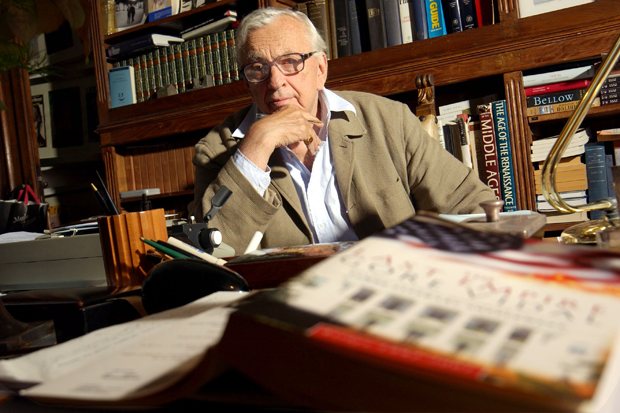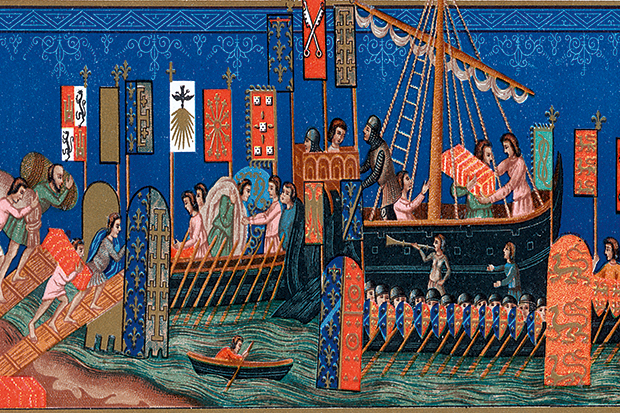As a novelist, Iain Pears doesn’t repeat himself, and he gives with a generous hand. In Arcadia, he provides a dystopian vision of the 23rd century, scholarly espionage set in Cold War Oxford, and an Arts-and-Crafts pastoral called Anterwold, which involves swords and scholars and may or may not be the product of the imagination of one of the characters elsewhere. All this (and much else) is somehow connected to an 18th-century text known as The Devil’s Handwriting containing a mathematical formulation that wasn’t invented until five centuries later.
Confused? It gets far more complicated. Arcadia is not so much a novel as a cornucopia of narratives. These unfold through three interlocking universes and involve the viewpoints of ten characters. In case this isn’t enough, the book is bundled with an elegantly designed app for iPad and iPhone containing the text of the novel. The app also works as a sort of user’s manual that allows you to see the overall structure of the book and to follow the stories of any of the main characters, or a combination of them, in the order of your choice. It includes a series of ‘notebooks’ providing information about the backgrounds to the story (it would have been helpful to have easier access to these).
Several characters move between universes, sometimes by means of a rusting cast-iron pergola in a north Oxford cellar, and sometimes, even more mysteriously, with the help of enormous quantities of electricity. Understandably in these circumstances, they are given to musing anxiously about notions of time, fiction and reality. You regularly stumble on vertiginous remarks like ‘The dangers of Henry’s imagination ending up inside itself are so evident that they hardly need to be stated.’
By its very nature, Arcadia is not an easy read. Just as you settle into one universe, one timeframe and one viewpoint, all three of them change to another combination. Some ingredients are less convincing than others: Rosie, for example, an Oxford 15-year-old, appears by the maturity of her conversation to have been born aged 30; the Cold War spooks, complete with obligatory molehunt, will not convince dedicated readers of le Carré; and Anterwold, which has shades of both Narnia and Middle-earth, is an oddly pallid place in comparison with the smog-ridden, polluted 23rd century.
Arcadia may have its shortcomings, but it’s also ambitious, amusing and very readable. Embrace the confusion and enjoy.
Got something to add? Join the discussion and comment below.
Get 10 issues for just $10
Subscribe to The Spectator Australia today for the next 10 magazine issues, plus full online access, for just $10.
Available from the Spectator Bookshop, £15.99 Tel: 08430 600033
You might disagree with half of it, but you’ll enjoy reading all of it. Try your first month for free, then just $2 a week for the remainder of your first year.














Comments
Don't miss out
Join the conversation with other Spectator Australia readers. Subscribe to leave a comment.
SUBSCRIBEAlready a subscriber? Log in